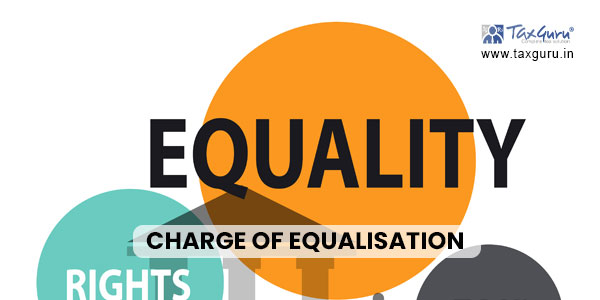Understand the Equalisation Levy charge on specified services and e-commerce supply or services. Explore rates, exemptions, and the time period for remittance. Stay informed on the Finance Act’s impact and compliance requirements. Learn how the Equalisation Levy addresses tax treaty benefits. Disclaimer: This article is for educational purposes only.
Many resident assesses make payments to foreign online advertisement companies and claim such payments as business expenditure. Also these non resident online advertisement companies were not liable to pay tax here in India. As a consequence of the same, India was losing its revenue as the payer gets the deduction and the payee’s income is non taxable.
Hence in the Finance Act, 2016, a concept of Equalisation Levy was introduced. It provides a levy of amount for consideration for specified services received or receivable by a non resident not having PE in India, from a resident in India who carries out business or profession, or from a non resident having PE in India.
In order to widen and deepen the equalisation levy net beyond online advertisement, its scope has been extended to consideration received or receivable for e-commerce supply or services made or provided or facilitated on or after 01.04.2020.
Charge of Equalisation Levy on “Specified Services”
Equalisation Levy @ 6% is leviable on the amount of consideration for Specified service received or receivable by a person, being a non resident from a person resident in India and carrying on business or profession, or a non resident having PE in India.
“Specified Services” here means: –
- Online advertisement,
- Any provision for digital advertising space or any other facility or service for the purpose of online advertisement,
- Any other service as may be notified by the Central Government.
Please note that Equalisation levy is not chargeable, where: –
- A non resident providing the specified service has a PE in India and the specified service is effectively connected with such PE, or
- The aggregate amount of consideration for specified service received or receivable in a previous year by the non resident does not exceed Rs. 1 lakh, or
- Where the payment for the specified service by the person resident in India is not for the purpose of carrying out business or profession.
Charge of Equalisation Levy on E-commerce supply or services
Equalisation levy @ 2% is leviable on the amount of consideration received or receivable by an e-commerce operator for e-commerce supply or service made or provided or facilitated by it: –
- To a person resident in India, or
- To a person who buys such goods or services or both using internet protocol address located in India.
Please note that Equalisation levy is not chargeable, where: –
- Where the e-commerce operator has PE in India and such supply or service is effectively connected with such PE, or
- Where turnover or gross receipts of the e-commerce operator from the e-commerce supply or service made is less than Rs. 2 crores during the previous year.
Time Period of remittance of Equalisation Levy
Equalisation levy has to be paid to the Central Government quarterly as follows: –
| S. No. | Quarter Ending | Due Date |
| 1 | 30th June | 7th July |
| 2 | 30th September | 7th October |
| 3 | 31st December | 7th January |
| 4 | 31st March | 31st March |
Return: – A statement in respect of all such specified services or e-commerce supply or services which were chargeable to equalisation levy during the financial year is required to be furnished in Form No. 1 on or before 30th June immediately following that financial year.
To conclude with, one of the primary reasons for introducing the Equalisation Levy through Finance Act is to deny tax treaty benefits, otherwise it would defeat the entire purpose of introducing the Equalisation Levy.
Hope the above insight on Equalisation levy was useful.
Disclaimer: The article is for educational purposes only.





